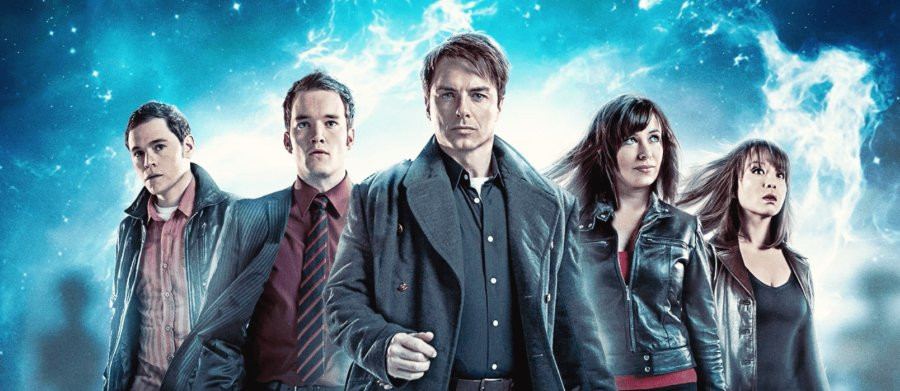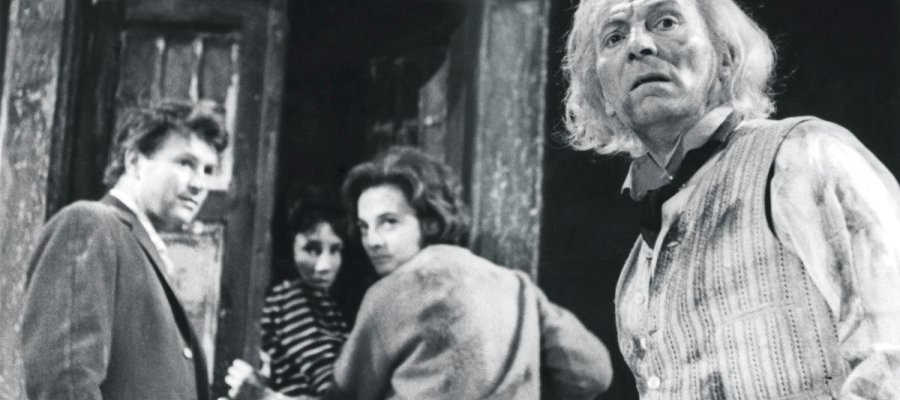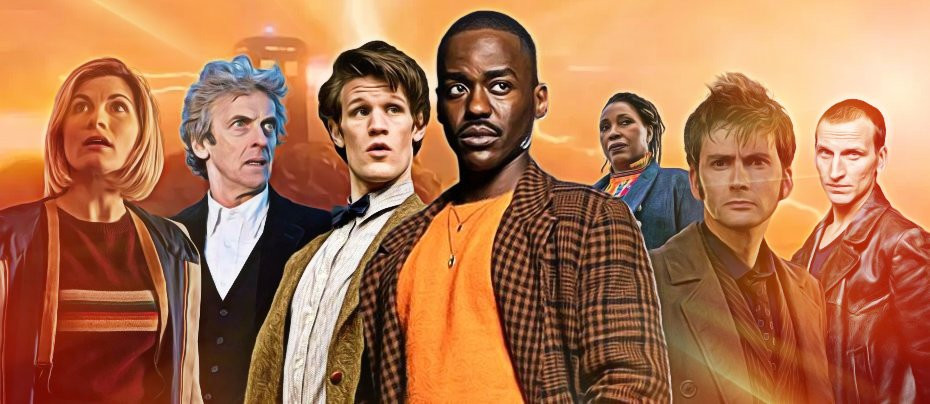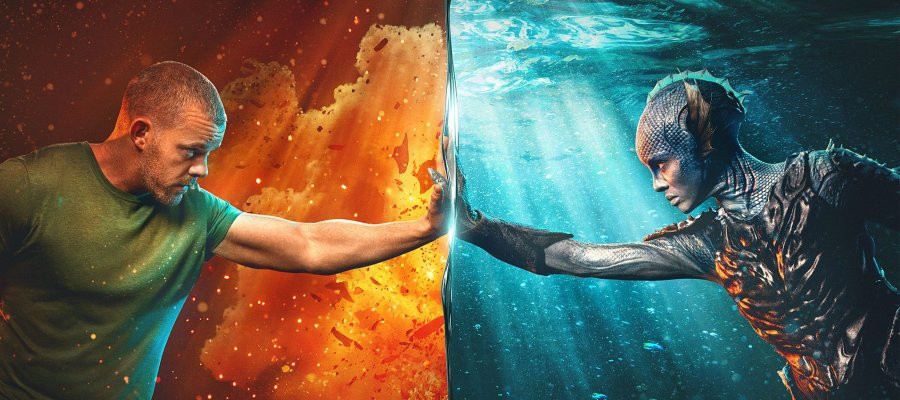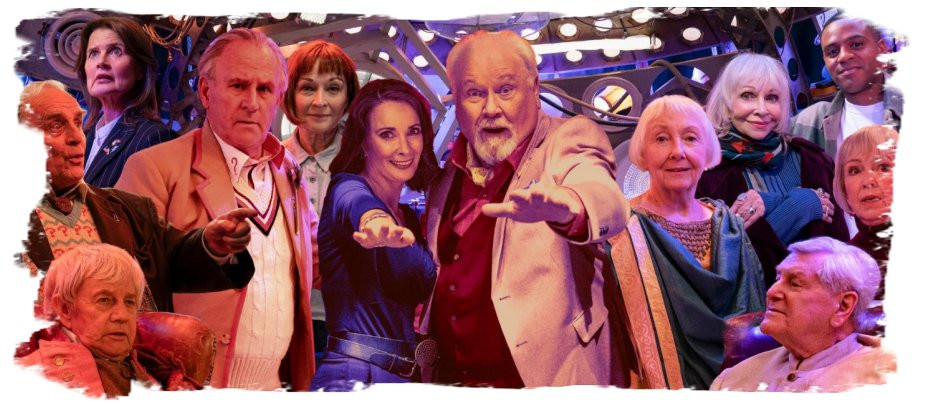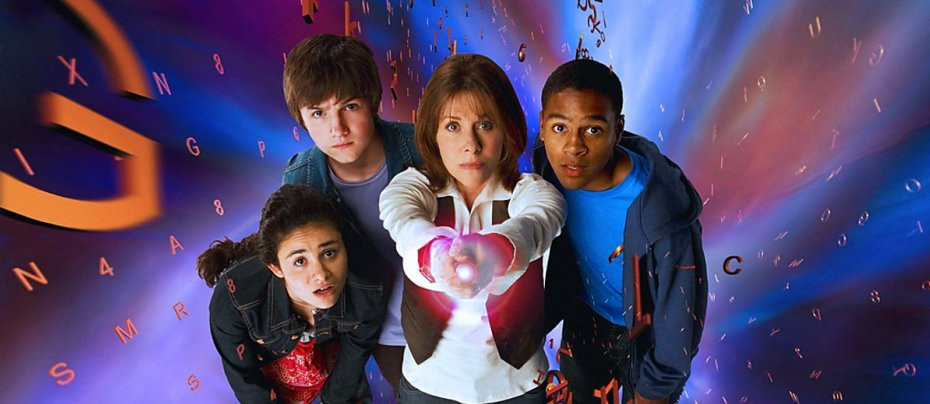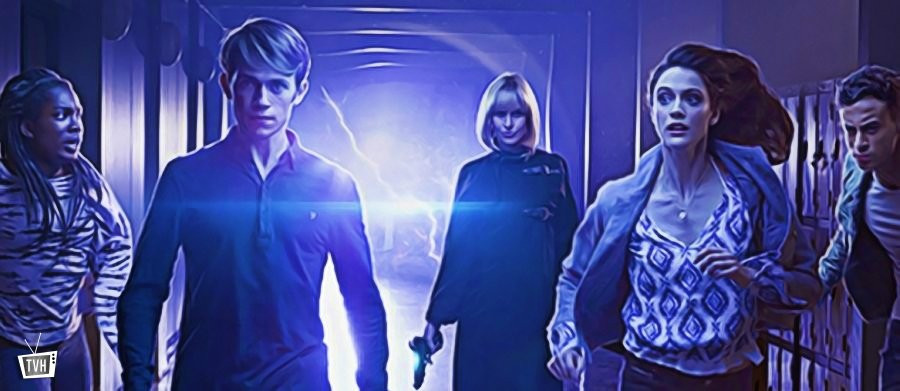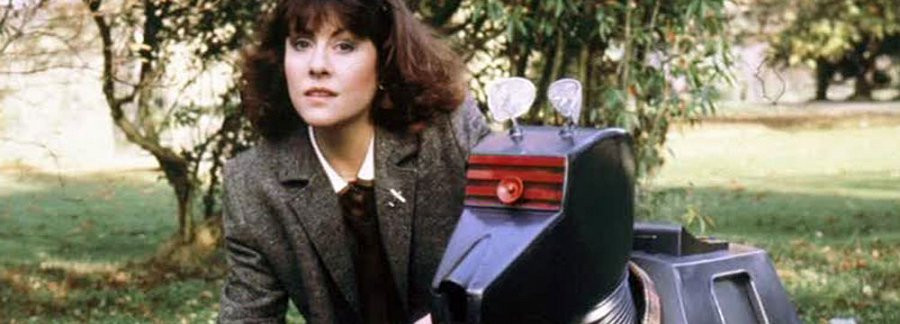Wilfred Mott - The Nation's Grandad
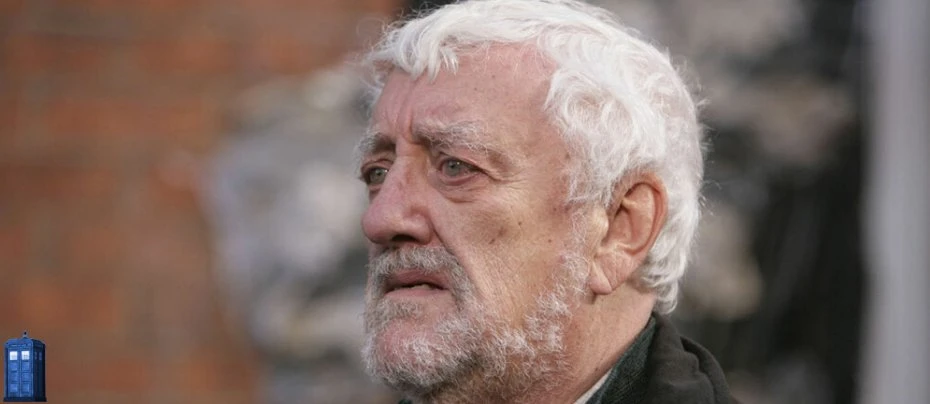
…a much-loved and valued companion of the Doctor
The late great Bernard Cribbins (1928-2022) appeared in dozens of movies and TV shows. Perhaps you remember him from a number of films from the Carry-On franchise, a hapless guest in Fawlty Towers, the narrator of The Wombles, or as the loveable Wilfred Mott in Doctor Who. Wilfred Mott is the TV grandfather of companion Donna Noble (Catherine Tate) and appears in the fourth series of the reboot. Quickly, Cribbins’ performance found a place in the hearts of many viewers, and the character even briefly became a companion of the Doctor himself in The End of Time – Part One and The End of Time – Part Two. Bernard Cribbins carved out a special place within Doctor Who’s history for his excellent portrayal of Wilfred Mott.
One thing many of us remember and love about our grandparents is their cheeky side. Quite often, a parent would say “no more chocolate”, and your grandfather or grandmother would slip you another one secretly. This wonderful attitude is seen in Wilf’s character. It is important to note here just how skilled Cribbins was at his role. Cribbins himself did not have any children, much to his and his late wife’s disappointment. However, he was a strong supporter of children’s charities and supported many children’s TV shows. So, he did an excellent job at being a grandparent to the character of Donna Noble. It is no secret that Donna and her mother, Sylvia Noble (Jacqueline King), do not get on at the best of times. It is clear how Sylvia makes Donna feel in Turn Left, when she says, “You said I should have worked harder at school. I suppose I’ve always been a disappointment.” Sylvia agrees, saying “yeah”. In Partners in Crime, there is an excellent montage at the beginning of the episode where Sylvia is implied to be having a long-winded and one-sided argument with Donna about her employment status. Fed up, Donna eventually asks, “where’s Grandad?” Donna feels comfortable with Wilf, and this is where our connection with the character surely begins.
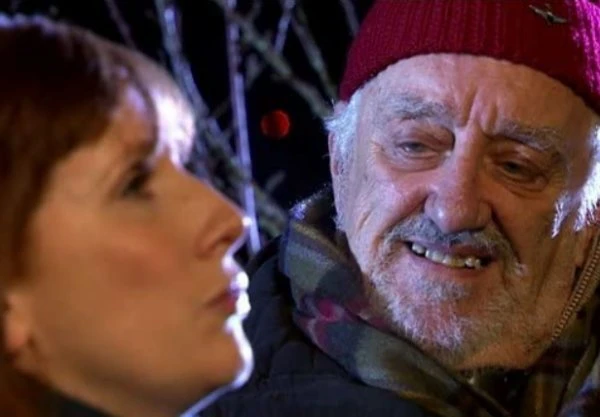
Without knowing the full context of the Doctor’s identity, Wilf nonetheless encourages Donna to pursue finding him again (after he and Donna met in The Runaway Bride). He encourages her to be as stubborn and strong as she was in her youth, saying “where’s that girl, hey?”. His encouragement of Donna endears us to the character more and more. We see his gratitude for what the Doctor offers Donna through his acceptance and blessing for Donna to travel with the Doctor, merely asking for Donna to “bring a bit of (the stars) back for your old Gramps”. He is Donna’s main support and guidance in her life and, as much as we grow to love Donna, we do love Wilfred and what he has given his granddaughter too. There is no doubt whatsoever that the fabulous Bernard Cribbins surely unleashed all his love and goodness through his performance and gave us an insight into just what an amazing person he would have been as a real-life Grandfather.
Another one of Wilfred’s key traits is his fighting spirit. Wilfred is of a generation fast disappearing, a war veteran who saw active service in the Second World War. In fact, Cribbins himself saw active service in the late 1940s. Wilf’s fighting spirit was, indeed, admirable to see. In The Stolen Earth, when the Daleks invade earth, Wilf decides it is not appropriate to just sit and do nothing and takes to the streets with a paint gun – much to Sylvia Noble’s displeasure and concern. Wilf is bold and brave during these scenes, hiding behind walls, and dodging corners. Wilf is in his element. One must admit the imagery of this war veteran in a red beanie with a paint gun is somewhat amusing, but his logic that “one splodge of paint” would blind a Dalek appears irrefutable. Unfortunately, this is not the case. Nonetheless, as the Dalek cries “you will come with me!”, Wilf’s reply of “will I heck!” is quite iconic and is a testament to his fighting spirit and attitude.
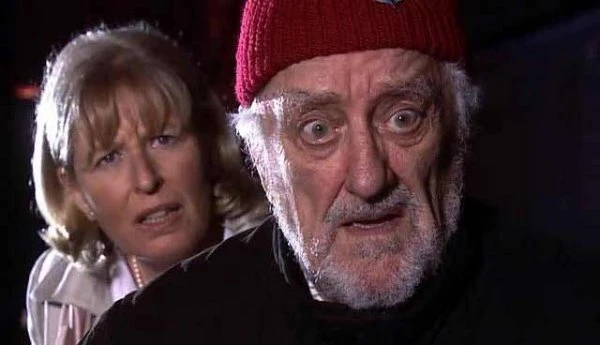
However, to his credit, Wilf is not a murderous individual. He has evident pride in his military roots, feeling a particular sense of duty towards Her Majesty the Queen (as seen in Voyage of the Damned), his army badge on his beanie, his salutes to the Doctor (seen in Journey’s End and The End of Time – Part Two), and his retention of his pistol after many years of peacetime speak volumes about Wilf’s patriotic and loyal character. However, when “the woman” who appears to Wilf in The End of Time seems to imply that the fact he “never killed a man” was “shameful”, Wilf protests – proud of the fact he has not needed to do so. We fall in love with Wilf’s humility and his attitude. His sense of duty and pride are something many people viewing the series could relate to but also his kindness and empathy for his fellow man are exemplary. For sure, this empathy is something that makes Wilf such a good grandfatherly figure for all those watching.
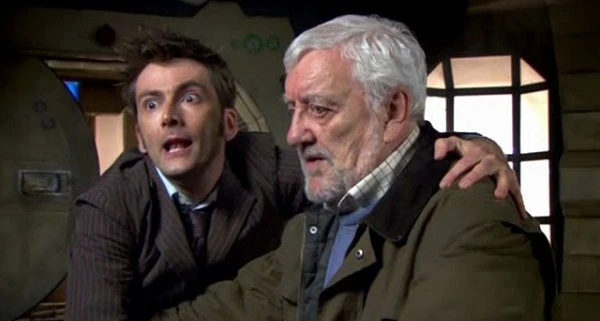
Another thing that draws us closer to Wilf is the absolute adoration he has for The Doctor, a Time Lord, over nine-hundred years old. To the Doctor, Wilf could be nothing more than an old human being, with a tiny lifespan. Wilf himself notes this, whilst the Doctor responds that, to him, humankind are “like giants”. The Doctor continues by saying “(he) would be proud… if (he was) my Dad”. This statement says a lot about the way the Doctor views Wilfred. The Doctor lost his entire family and species due to the Time War, and yet feels comfortable subscribing the title of “Dad” to Wilfred. This is a huge progression for the Tenth Doctor (David Tennant) as he appears to understand that, like Sarah Jane said in Journey’s End, he has the “biggest family” on earth. Unfortunately, this is a short-lived realisation as the Tenth Doctor regenerates at the end of The End of Time. However, perhaps this relationship with Wilf influences the new Eleventh Doctor (Matt Smith) in the way he builds a family with Amy and Rory (Karen Gillan and Arthur Darvill).
The Doctor even deals with Wilf in a much gentler way than he may other companions. Wilf is insistent to the point of tears that the Doctor should take his pistol and shoot the Master to restore order to earth and save his own life from the Master’s vengeful spirit. At the suggestion of taking up arms, other companions may have found themselves dropped off back on earth or given a strong lecture on peace, or the “moral high ground”. Instead, the Doctor just gently looks Wilf in the eye and half-whispers “no… never.” Wilf’s tears and protestations to the Doctor appear wonderfully real, although The End of Time garnered a somewhat mixed review from the fanbase there is no doubting the sincerity, honesty, and sensitivity of both David Tennant and Bernard Cribbins in this scene on the Vinvocci spaceship.
Of course, the Doctor also sacrifices his Tenth life to save Wilf from poisonous radiation – a famously upsetting scene from The End of Time – Part Two. The Doctor, knowing the family struggle with money, also appears to gift Donna Noble a winning lottery ticket at her wedding to Shaun Temple (Karl Collins). Out of all his visits to former companions before his regeneration, this is arguably the most personable and sensitive one. The salute Wilf gives as the TARDIS de-materialises is incredibly heart-wrenching – it is an incredible moment of television. The two characters of the Doctor and Wilfred have a great relationship; Cribbins’ sensitive performance, so emotionally in tune with the scripts, have made us as viewers absolutely adore his character.
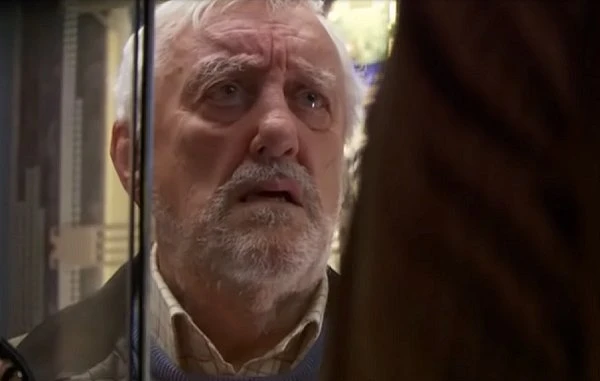
His grandfatherly nature, however, would not be complete without a discussion of Wilf’s excellent sense of humour. Wilf’s time on Doctor Who did provide certain levels of comedic relief, whether that be his comment “God bless the cactuses!” or his little dance when meeting with other members of the “silver cloak” dedicated to finding the Doctor in The End of Time, or his little jokes that he “thought it (the TARDIS) would be cleaner”, Wilf’s innocent nature and ability to have a laugh is an incredibly endearing aspect of his characterisation. As a successful comedy actor, perhaps Cribbins used some of his experience in formulating Wilf.
However, there is a marked comparison to be had between his performance of policeman Tom Campbell in the 1966 movie Dr Who Invasion Earth: 2150 AD – his first appearance in the “whoniverse”. In this movie, Cribbins shows his incredible ability to make us laugh. His performance is funny, endearing, and relatable. Tom Campbell’s clumsy nature and ability to laugh at himself and tricky situations are definitely things brought through into Cribbins’ eventual portrayal of Wilfred Mott over forty years after he first appeared in Doctor Who-related media. Quite clearly, Bernard Cribbins was an incredible performer and deserves the recognition he has received by the fanbase since 2008.
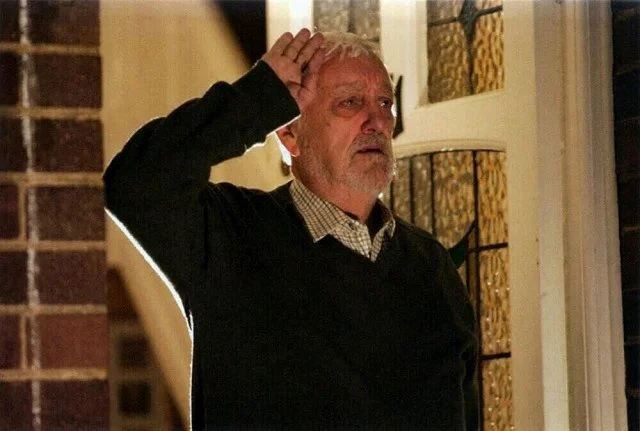
It is evidently clear why many viewed Bernard Cribbins as the “nation’s grandad” and, for fans of Doctor Who, a much-loved and valued companion of the Doctor. His grandfatherly love for Donna in the series is really impressive, alongside his strong sense of duty, moral values, and yet his empathy and human kindness. The Doctor’s response to Wilf is surely a sign of this, he enjoys being in his company and would even be proud to call him family. It has been reported that, before his sad passing, Bernard was filming for the 60th anniversary special of Doctor Who, causing much excitement. If this is true, and it goes ahead as planned, Bernard Cribbins’ final contribution to the Doctor Who universe will be emotional and much respected. However, regardless, Bernard Cribbins really did an excellent job portraying Wilfred Mott and has earned his place in both the Doctor Who cannon and the hearts of TV viewers from many generations, with interests in many different aspects of television.
In loving memory of Bernard Cribbins (1928-2022)
Written by Joshua Nicholson


